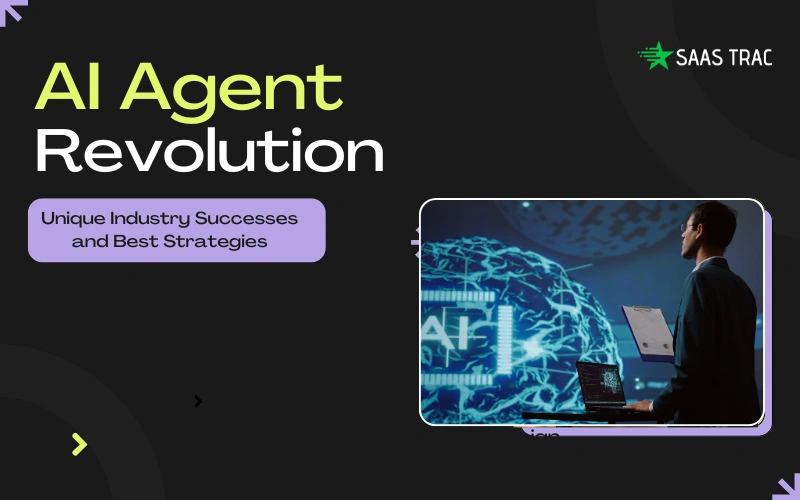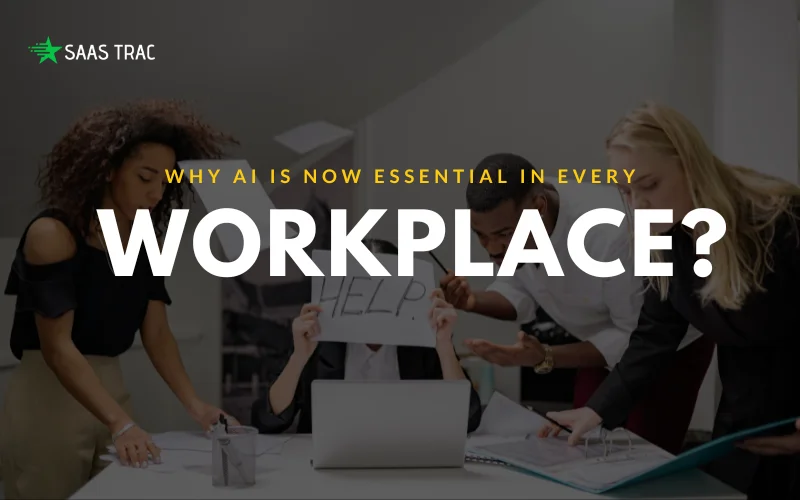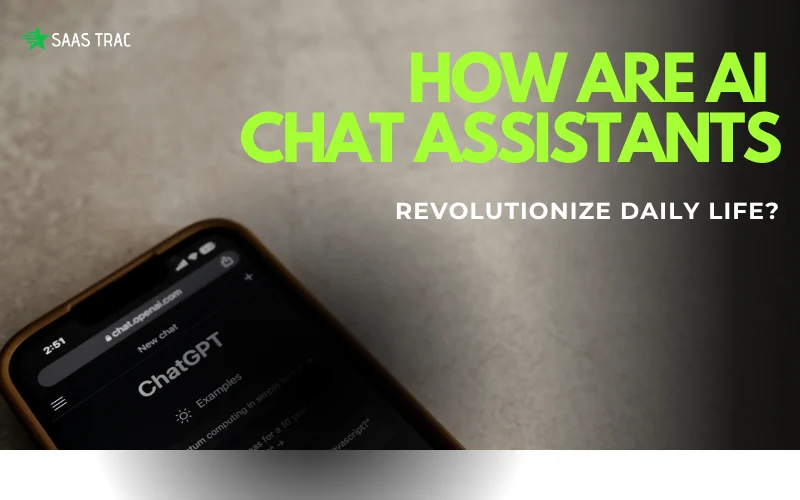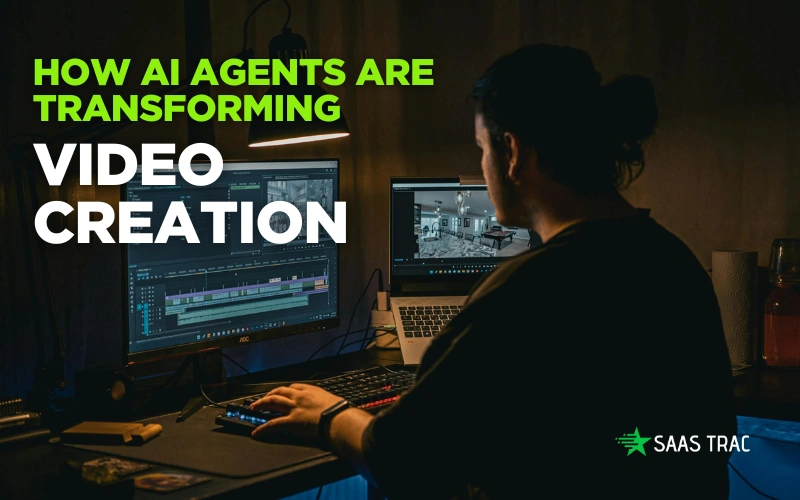You’ve likely interacted with an AI agent today without even realizing it.
Maybe it scheduled your meeting, answered a support question, or helped you shop online. These virtual teammates are everywhere—and they’re changing the way we work.
In fact, we’re living through a revolution.
From startups to Fortune 500 companies, businesses are rapidly adopting AI agents to boost speed, reduce costs, and deliver smarter services.
Let’s dive into what an AI agent really is, how it’s shaking up industries, and the best strategies to adopt one in your business.
Hit ‘Play’ Button & Tune Into The Blog!
What Is An AI Agent?
An AI agent is more than a chatbot or virtual assistant. It’s an intelligent program that can think, act, and learn on its own.
It doesn’t just follow rules—it makes decisions based on data, context, and goals.
Here’s a simple way to think about it:
An AI agent is like a digital coworker who never sleeps, always learns, and can handle complex tasks independently.
These agents use advanced algorithms, machine learning, and automation to complete tasks that once needed a human touch.
AI Agent Frameworks: The Brains Behind The Bots
So, how do they work?
AI agent frameworks are the secret sauce. They provide the structure and tools needed to build and run AI agents.
Some popular frameworks include:
- LangChain – Great for building agents with LLMs (large language models)
- AutoGPT – Focuses on goal-driven task completion
- ReAct (Reason + Act) – Allows agents to think before acting
- Microsoft’s Semantic Kernel – Integrates AI with real business processes
These frameworks help AI agents break down tasks, make decisions, and adapt in real time. They’re the backbone of modern AI agent companies pushing this tech forward.
Why Businesses Are Rushing In?
Here’s why businesses are moving fast:
- 63% faster task completion
- 45% reduction in costs
- 89% boost in accuracy
But that’s just the surface. The real power lies in how AI agents reshape operations, automate workflows, and free up human teams for big-picture thinking.
AI Agent Companies: Leading The Charge
Major players are already seeing big wins. Here are some standout examples of AI agent companies doing it right:
1. Best Buy: Smarter Customer Service
Their virtual assistant now handles 40% of queries, cutting wait times by 75%. Customer satisfaction? A solid 90%.
2. Sabre Travel: Faster Bookings
AI agents handle complex itineraries three times faster. Booking errors dropped by 85%.
3. Telecom Italia: Tackling Labor Shortages
By automating 60% of customer service, they slashed training time and kept service quality high, even during peak hours.
These companies didn’t just automate—they reimagined how work gets done.
Where AI Agents Are Winning Big
Let’s explore how AI agents are making unique industry impacts.
Healthcare
- Automated appointment scheduling
- AI-assisted diagnosis
- Follow-up reminders
- Predictive maintenance for machines
Result: More patients served, less paperwork, and faster decisions.
Manufacturing
- Smart inventory tracking
- AI-powered quality checks
- Machine maintenance predictions
Result: Fewer breakdowns, faster production, better quality.
Retail
- Dynamic pricing updates
- Personalized shopping bots
- Stock forecasting
Result: More sales, less overstock, and happier customers.
Finance
- Automated fraud detection
- Risk assessments
- Real-time financial planning
Result: Fewer errors and faster, smarter decisions.
HR And Recruitment
- AI screening of resumes
- Automated onboarding
- Employee engagement tracking
Result: Better hires, smoother onboarding, and reduced churn.
Pro Tip: Start With One Workflow
You don’t need 10 agents to see results.
Pick one slow or costly process. Add an AI agent. Watch it transform in weeks.
The best strategies come from starting small, measuring impact, and scaling fast.
Best Strategies To Adopt AI Agents
Want to bring AI agents into your business? Here’s how to do it right—step-by-step.
- Identify High-Value Use Cases
Before jumping into implementation, zoom in on tasks that drain time and resources. Think of repetitive tasks like responding to customer queries, processing data, scheduling, or generating reports.
These areas are perfect for AI agents because they follow clear patterns and rules. If it’s something that eats hours every week and doesn’t need human creativity, it’s a prime target for automation.
- Choose the Right Framework
What is an AI agent framework? Simply put, it’s the system that powers your AI agent’s brain. Some frameworks are great for natural language processing, others excel at managing workflows or analyzing big data.
Choose one based on your industry and the problem you’re solving. For example, if you’re in e-commerce, go for a framework that supports dynamic pricing and customer interaction.
- Focus on ROI
Start small, but smart. Pick use cases where success is easy to measure—like improving customer response times, cutting down manual hours, or boosting conversions.
This helps you show clear ROI to stakeholders and gain buy-in for larger deployments.
- Involve Your Team
Adoption isn’t just about tech—it’s about people. Employees may worry that AI agents will replace them.
Instead, show them how these tools will reduce grunt work and help them focus on more meaningful tasks. Offer hands-on training and explain how AI agents work with them, not against them.
- Monitor and Improve
Your first AI agent won’t be perfect. And that’s okay. Regularly track performance metrics, gather user feedback, and refine your systems.
As your AI agent learns, your workflows will get faster, smarter, and more accurate. Continuous improvement is the key to long-term success.
Real-World Wins: What You Can Learn
Let’s break down a few inspiring stories.
Snap’s AR Lens Creator
Their AI agent helps devs build AR lenses in minutes instead of hours. This made content creation scalable and easy.
Lesson: Use AI to remove bottlenecks in creativity.
A Global Logistics Company
They used AI agents for shipment tracking, customs clearance, and customer communication.
Result: 24/7 service across time zones with zero human fatigue.
Lesson: AI agents shine in operations that never sleep.
A Healthcare Startup
Used AI to monitor patient vitals and alert doctors in emergencies.
Result: Lives saved. Response times slashed.
Lesson: AI agents can be lifesavers, literally.
Looking Ahead: The Next Wave of AI Agents
The next generation of AI agents will be:
- Voice-enabled
- Emotion-aware
- Decision-capable
- Fully autonomous
They won’t just answer questions. They’ll predict problems, suggest solutions, and take action.
They’ll become trusted teammates, not just tools.
Build Your AI Agent Roadmap
The AI agent revolution isn’t just for tech giants. Small businesses are adopting fast and winning big.
“The best time to start with AI agents was a year ago. The second-best time? Right now.”
Here’s your action plan:
✅ Step 1: Identify your most painful workflows
✅ Step 2: Research industry-specific AI agent frameworks
✅ Step 3: Run a pilot project
✅ Step 4: Measure ROI and scale up
✅ Step 5: Train your team and repeat
Final Thoughts
The AI agent revolution is here, and it’s changing everything. From saving time to cutting costs, AI agents work hard so you don’t have to. Don’t wait on the sidelines while others get ahead.
Start small, pick one process, and watch results roll in fast. With the right tools and your team on board, success is just around the corner. Ready to boost your business with AI agents? Take the first step today and join the future of work. Your smartest teammate is waiting — don’t miss out!







